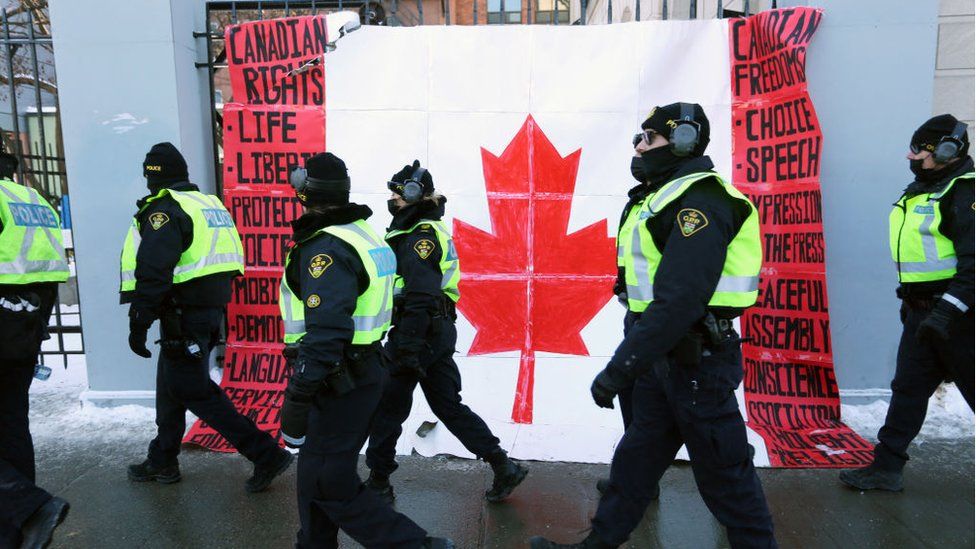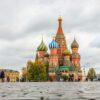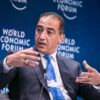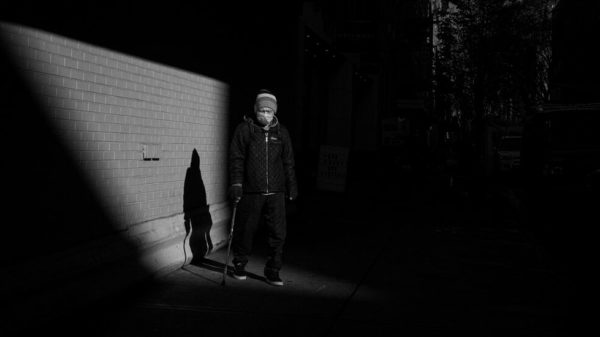Canada’s busiest border crossing has reopened on Tuesday morning after protesting truckers ground traffic to a halt on the bridge for nearly a day.
Truckers rallying against Canada’s Covid vaccine rules had blocked Ambassador Bridge on Monday night, forcing vehicles to take long detours.
The bridge over the Detroit River is a vital trade link between Canada and the US.
Over 40,000 people and $323m (£238m) worth of goods crosses it each day.
Protesters had forced authorities to declare the bridge closed shortly before 21:00 local time on Monday.
Hundreds of vehicles were backed up for miles as travellers were warned by Canadian police to reroute.
The bridge’s closure came the same day as Canadian Prime Minister Justin Trudeau accused the protesters of attempting to “blockade our economy”.
In remarks on Monday, Mr Trudeau said that Canadians were “shocked and frankly disgusted” by some protesters’ behaviour, which has reportedly included vandalism and racial abuse.
The demonstrations have been largely centred on the Canadian capital of Ottawa, where vehicles have gridlocked the city and prompted authorities to declare a state of emergency.
For nearly two weeks, hundreds of lorries have brought the city centre to a standstill, forcing many local businesses to close.
Residents’ nerves were also being frayed by constantly blaring air horns. On Monday, an Ottawa judge ruled that the truckers must stop honking their horns for 10 days.
While most of the protest has been peaceful, Ottawa police have said they are concerned about the extremist rhetoric coming from far-right groups at the rally. As well as reported racial and homophobic abuse, Nazi symbols have been displayed and protesters danced on the Tomb of the Unknown Soldier at the National War Memorial.
Ottawa police have said they are investigating more than 60 incidents, including alleged hate crimes and property damage.
“I want to be very clear – we are not intimidated by those who hurl insults and abuse at small business workers and steal food from the homeless,” Mr Trudeau told MPs at an emergency debate in Canada’s House of Commons on Monday.
“We won’t give in to those who fly racist flags, we won’t cave to those who engage in vandalism or dishonour the memory of our veterans.”
Canadians have the right to protest, to disagree with their government, and to make their voices heard. We’ll always protect that right. But let’s be clear: They don’t have the right to blockade our economy, or our democracy, or our fellow citizens’ daily lives. It has to stop.
— Justin Trudeau (@JustinTrudeau) February 8, 2022

On Sunday, Ottawa Mayor Jim Watson declared a state of emergency in the capital, and said the protests were “out of control.”
He asked the federal government to send an extra 1,800 police officers and a mediator to work with the protesters to “end this siege”.
The so-called Freedom Convoy began on 9 January in western Canada as truckers protested against a new rule that requires them to be vaccinated against Covid-19 to cross the US-Canada border. The demonstrations have now morphed to include anger at a raft of Covid-19 restrictions and at Mr Trudeau’s government generally.
Demonstrations have also spread to other Canadian cities, including Toronto and Vancouver. Internationally, there have been rallies of support in New Zealand’s capital Wellington and Canberra in Australia.
Some Ottawa residents complained that the police response had been weak.
Police Chief Peter Sloly said officials would “aggressively go after” any individuals or organisations funding the protest, and a GoFundMe page which had raised C$10m ($7.9m; £5.8m) was shut down.
This video can not be played
To play this video you need to enable JavaScript in your browser.

A divided city
Jessica Murphy, BBC News, Ottawa
For city blocks, in the centre of the national capital, massive trucks are parked, many decorated with signs calling for an end to vaccine mandates – or simply “Freedom”.
Up to 500 such trucks are estimated to be in Ottawa’s downtown right now and many have been there for going on 12 days.
The fences in front of the parliament building are covered in hundreds of handwritten protest signs expressing support for their cause.
The protesters say that theirs is a cause all Canadians should applaud – but after nearly a fortnight of blaring horns and streets shut by blockaders and police, many residents of Ottawa see it differently.
“They’ve done their protest and should have been sent home a long time ago,” David, a local business owner said.
Holding a sign opposing the protests, he said he has got some supportive honks and thumbs up from passers-by. But he’s also been yelled at by protesters, or bumped into and pushed, and they’ve tried to take his sign.















